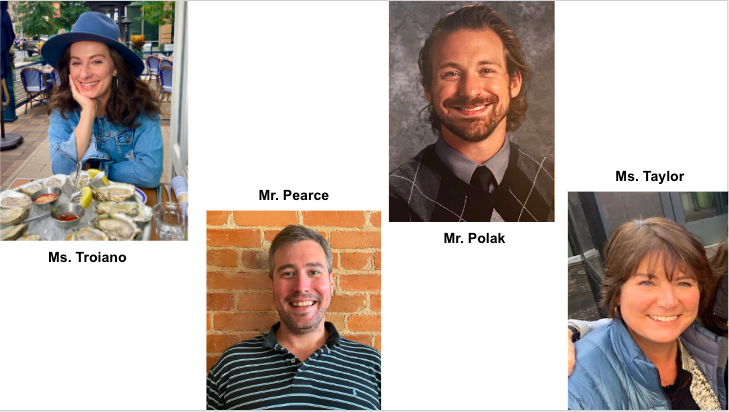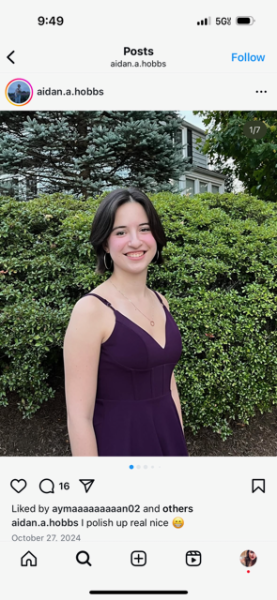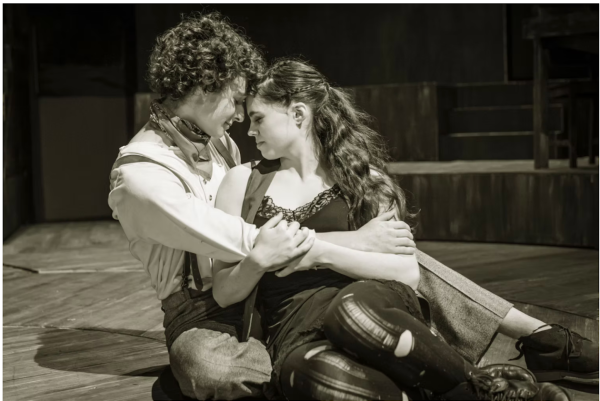Welcoming W-L’s Newest Teachers
Bringing in the new year with new faces
Note: The reason for differences in length of stories are based on the amount of information provided by teachers.
What comes to mind during the beginning of a new school year? Probably being excited, nervous, and most likely missing summer. These feelings are not just for students. Each year, many new teachers also have to think about the year ahead, which means a new school, new students, and how to plan their classes.
This school year welcomes many new teachers. Along with new classroom setups, they have a lot on their minds.
Ms. Lelia Troiano, a University of Virginia and W-L graduate, who teaches regular biology for ninth graders comments on how her classroom is not a typical science room with the changes that come with the new school edition.
“I’m in the English hallway area,” Ms. Troiano said. “My classroom has no windows, no sinks, and no lab benches. It’ll be sort of a challenge to make that space into a biology classroom. I also know that the rest of the biology and science teachers are very flexible with letting me borrow their rooms if we have a lab. It’ll be a little bit of flexibility and movement, but it shouldn’t be too much of an issue.”
Troiano started teaching at West Springfield High School in Fairfax. She then worked at Wakefield for three years. Last year, as a Bilingual, she taught English in a town in France. Troiano also experienced another school setting to improve her French speaking skills.
Troiano commented very fondly about her time at W-L as a high schooler.
“I’m excited to just be back, I really loved going to W-L as a high schooler and a lot of the teachers that I had growing up are still there, which speaks to how strong of a community the school is,” Troiano said. “I’m excited to be working with those people who influenced me in my educational career… I love the diversity of the student body and the staff that are there and I love how committed everyone is. I feel like there’s a lot of school spirit.”
Agreeable to many, the accessibility of Arlington is a nice bonus. Troiano mentioned that her favorite part of the school is how she can walk to get there.
“I love it, it’s close to home, my commute is really easy, I walk to school,” Troiano said.
Troiana has many hopes for students coming into her classroom.
“Just be curious,” Troiano said. “I feel like you can learn a lot by asking questions about the content but also the students and the teachers that you’re working with just have an open mind. I know it’s a really big deal. Last year was a transition, just be patient and flexible with everyone and talk to people. We haven’t had a lot of time to talk to people face-to-face. So take advantage of it.”
Troiano has a positive attitude toward adapting to learning and social environments after COVID.
“A lot of students have missed out on a lot of social and emotional development or the practice of being around peers,” Troiano said. “I’m a little worried about what that might look like, especially because I wasn’t in the US last year, so I don’t really have an idea, but I also feel like kids are really resilient…I feel there’s this mutual understanding and respect and like, ‘Hey, we’re all coming back. Let’s just all be kind and understanding.’ I’m a little nervous, but I’m also hopeful that it’ll be fine and everyone’s just going to be excited to be there.”
When asked about “learning gaps,” where students who go to a higher level of learning may forget some content from the previous level, she does not have much concern.
“I feel the idea was created artificially because you’re still learning every single day even if you’re not necessarily in a classroom,” Troiano said. “I think it’s going to be sort of readjusting to the type of education that they’re used to.”
As many of us know, technology is a major part of our world, and we often use it in the classroom.
“[In France] There were absolutely no phones or computers allowed in classes; everything’s on paper with pens,” Troiano said. “Even though the students had their phones with them, they were very respectful of keeping them away unless specifically directed. I don’t think we could do that in APS, everybody’s so used to getting a laptop, but it was interesting for me to adapt to that as well because the technology integrated into all of my lessons, and especially with the pandemic.”
James Polack is from New York state and received education through the public SUNY college system, specifically Geneseo and Oswego. He teaches Algebra II and Intensified Algebra II.
“I taught for one year down in Stafford County, I’m coming from being a middle school math teacher in Loudoun County for the past three years,” Polack said.
Like other teachers, Polack is enthusiastic about working with high school students again.
“I am really excited, I’ve missed that [high school] age group,” Polack said. “For the past couple years being in middle school I’m excited to be back with high school students and teaching subjects that interest me a little bit more than those middle school ones.”
Regarding his approach to teaching a math classroom, he sees a need for a more interactive set-up.
“I try to have students working together as much as they can,” Polack said. “I have never learned very well from the standard math class. For the most part, I like to get kids up and moving and working with each other and with a variety of different types of activities rather than what might be standard.”
He also acknowledges that math might not be everyone’s top subject, but he will work hard to help everyone do well as long as they are willing to learn.
Pollack commented on his preference for paper/pencil or technology, and he enjoys both.
“I would say I like to do a good variety of both,” Polack said. “People have it [notes] written down to reference, but I think there’s a lot of really cool stuff out there to either learn or reinforce stuff. I like a good balance.”
As a math teacher, he knows that students may have challenges in their home life.
“It’s hard to know what’s going on in kids’ lives out here and what their family life might look like and how it could have changed because of COVID,’ Polack said,’ we can meet kids where they are and figure that out here but what goes on outside is always my bigger concern.’”
Krishna Patury, who graduated from Georgia State University, teaches Algebra I and Algebra Functions and Data Analysis (AFDA).
“I believe in group work and learning from each other, do the best you can to seek help if you need it.”
Wendy Taylor is a graduate of VCU, past teacher at New Directions, and currently the United States/Virginia Government and the United States/Virginia History teacher at W-L who discusses her hopes for the year.
“I am happy to be here and look forward to meeting so many new people,” Taylor said. “I am hopeful that this will be a very good year for all of us.”
She mentioned that she enjoys discussing current events, staying calm, and having fun in class.
Taylor added in her comments about learning gaps and how students can bounce back.
“I worry about learning gaps, but I also realize these gaps have happened to students throughout time – natural disasters that have closed or destroyed schools and entire jurisdictions,” Taylor said. “We have to be focused, flexible and resilient because life goes on and we adapt.”
Tomas Pearce went to Virginia Tech and George Mason University. He enjoys interacting with culturally different groups of students and educators.
“Collaboration is key,” Pearce said. “We will do a lot of group/partner work to help each other learn and grow.”
Pearce believes that students are young leaders who are adaptable and able to succeed through any difficulties.
“Young learners are adaptable and are perfectly capable of succeeding through any hardships they may encounter, I love teaching and being a positive influence to young learners!”
Mackenzie Fusco is a World History and IB Anthropology teacher. She attended George Washington University for a B.A. in Anthropology and an M.Ed. in Secondary Education and is excited to be at W-L and to learn from and with students.
Fusco supports an open-style classroom.
“I like to run a seminar-style classroom that focuses on discussion. My classroom is set up to reflect that,” Fusco said.
She said that she believes students can get back on track with their work with COVID and learning gaps.
“I think that education in the time of COVID has brought a lot of challenges but has also forced us all to be very flexible and creative, using new tools and methods to teach and learn,” Fusco said. “I think that despite the difficulties and setbacks, students are still on track to develop the skills they need to succeed.”
What did you think about this story? Do you have any suggestions for improvements or other articles that you would like to see? Please use the contact form to communicate with us! (Keep all information school-appropriate)
https://docs.google.com/forms/d/e/1FAIpQLSeRYRWwLLzvs2rqwHSGdr-DQRvxhUSx9UcaXypXxnvVuCqwyA/viewform










